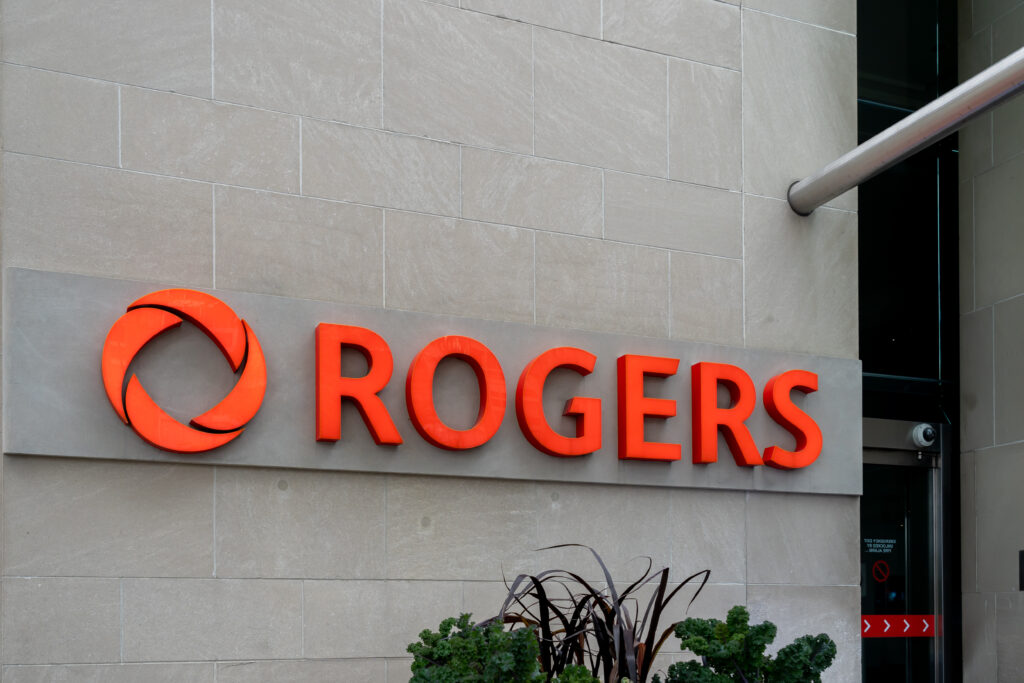

Features
Legal
Rogers ordered to produce past severance packages in wrongful dismissal lawsuit
By John Hyde
 The Rogers logo on its head office in Toronto. Photo: Adobe Stock
The Rogers logo on its head office in Toronto. Photo: Adobe Stock Saarinen v Rogers Communications Ltd., 2023 ONSC 4328, is a recent decision which demonstrates that Ontario courts are willing to order employers to produce past severance packages during a wrongful dismissal action. Employers should be aware of the reasons why the court made such an order and how to protect themselves.
Background
The plaintiff, Krista Saarinen, was employed by the defendant, Rogers Communications Ltd., and filed a wrongful dismissal lawsuit after her employment was terminated for cause.
During examinations for discovery (a step in the litigation process), Saarinen asked Rogers questions about past severance packages — including a request that such packages be produced.
Rogers refused to answer the questions on the basis that the severance packages were irrelevant because Saarinen was terminated for cause.
Saarinen filed a motion with the court seeking a judge’s order to compel Rogers to answer the refused questions.
At the motion hearing, Rogers further argued that, in addition to refusing to answer questions about past severance packages due to a lack of relevance in a termination for cause, they also refused to produce the evidence on the basis of “settlement privilege” (a legal principle that protects the confidentiality of communications and information exchanged for the purposes of settling a dispute).
The court’s decision
The court first assessed the relevancy of the refused questions. The court did not accept Rogers’ position that the questions were irrelevant because they were connected to terminations without cause while Saarinen was terminated for cause.
Saarinen’s wrongful dismissal action pled that there was no just cause for her termination. As such, the questions were deemed to be relevant for the assessment of damages if Saarinen successfully established that there was no just cause for her termination.
Next, the court assessed whether the requested documents and information was privileged.
The court accepted that there are circumstances in which communications between an employee and an employer about a termination is protected by settlement privilege. However, the court noted that the defendant had failed to provide any evidence to support settlement privilege. Further, the defendant had failed to raise the settlement privilege objection until late in the process. As such, the court did not accept that settlement privilege applied.
Overall, the court ordered Rogers to answer the refused questions, which included the production of past severance packages provided to employees (with names redacted) who had more than twenty-five (25) years of service and were terminated without cause between January 2017 and December 2019. The court also awarded Saarinen $6,540.67 in costs for the motion.
Lessons for employers
This decision suggests that, in certain circumstances, previous severance packages that an employer has provided to employees may be produced in wrongful dismissal proceedings. It is important for employers to know why the court determined that previous severance packages were producible in this case:
1. Rogers had failed to produce evidence that the termination offers were privileged, as such, employers should ensure they always mark the appropriate documents (such as settlement correspondence and offers made to terminated employees) as privileged.
2. The wrongful dismissal action claimed that the employee was entitled to a termination offer in an amount based on the defendant’s policies and past practices. If the action was only about the employee’s legal entitlements, the production of previous severance packages would not be relevant. As such, it is important for employers to pay extra close attention when similar claims are made against them, such that they are ready to respond to a production request for past severance packages. Further, the employer should take preventative measures and make it clear early in the process that termination packages and settlement offers are individualized and are not based on company policy or practice.
3. The court was also critical of Rogers’ failure to assert any settlement privilege over past severance packages until the motion. As such, employers will want to be ready to assert settlement privilege as soon as it becomes relevant and take preventative measures to ensure that past settlement packages remain privileged and confidential.
 John Hyde is the managing partner at Hyde HR Law in Toronto. He advises management on all aspects of employment and labour law, including representation before administrative tribunals, collective agreement negotiation, arbitrations, wrongful dismissal defence and human rights.
John Hyde is the managing partner at Hyde HR Law in Toronto. He advises management on all aspects of employment and labour law, including representation before administrative tribunals, collective agreement negotiation, arbitrations, wrongful dismissal defence and human rights.
Print this page